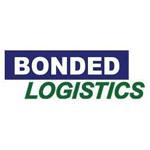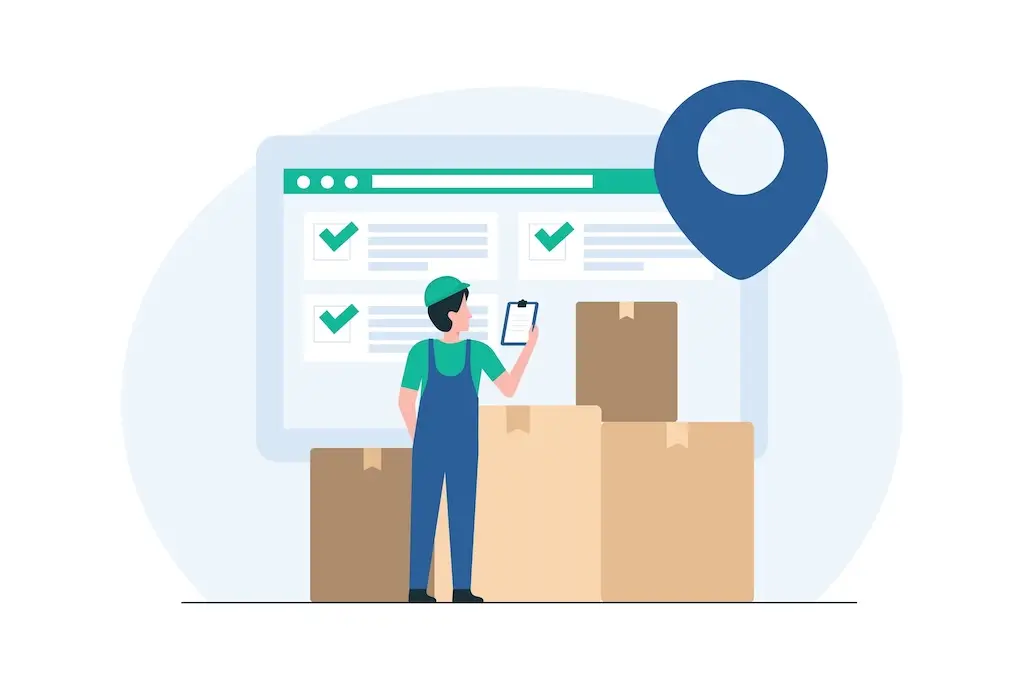Guide to Cloud-Based Warehouse Management Systems

Warehouse management is a critical aspect of supply chain operations and plays a crucial role in ensuring the smooth flow of goods and materials. With the advent of technology, warehouse management systems (WMS) have evolved to keep pace with the changing needs of modern businesses. Cloud-based WMS software systems are the latest iteration of these systems, offering a wide range of benefits over traditional on-premise solutions. A cloud-based solution eliminates the need for on-premises IT investments, provides automatic updates, and offers flexibility to adapt supply chain operations swiftly in response to market demands, while also enhancing maintenance, scalability, and migration processes.
In this article, we’ll provide an in-depth look at cloud WMS systems and discuss everything you need to know about this technology.
Understanding Cloud-Based Warehouse Management Systems (WMS)
Cloud computing is a technology that enables organizations to store, access, and manage data and applications over the internet instead of relying on local servers. Cloud-based WMS software systems leverage this technology to provide businesses with an efficient and scalable solution for managing their warehouse operations. These systems enhance data protection and security by storing information in secure, redundant environments managed by trusted cloud providers. However, businesses should also evaluate security protocols, compliance standards, and recovery processes to minimize potential risks.
For cloud-based systems the software is hosted on a remote server and can be securely accessed via a web browser. With a cloudWMS, businesses don’t need to install or maintain software on their local servers and workstations.
Benefits of a Cloud-Based WMS
A cloud-based warehouse management system offers several advantages over traditional on-premise solutions, including the following benefits:
1. Lower Upfront Costs & Predictable Pricing:
Cloud-based WMS solutions use a subscription-based pricing model, reducing the need for large upfront investments in IT infrastructure. This pay-as-you-go approach allows businesses to manage costs effectively while reducing hardware maintenance and software upgrade expenses.
2. Faster Implementation & Deployment:
Cloud-based WMS can be deployed quickly, often within weeks rather than months. Since the provider manages the infrastructure, businesses don’t need to allocate resources for installing or maintaining operating systems, databases, or servers, databases, etc.
3. Scalability Based on Business Needs:
Cloud WMS systems offer flexible scalability, allowing businesses to adjust system capabilities based on demand. While cloud solutions eliminate the need for costly hardware upgrades, scalability depends on the provider’s infrastructure and pricing plans, making it important to evaluate options carefully.
4. User-Friendly & Accessible:
Many cloud-based WMS solutions feature intuitive, web-based interfaces, making them accessible to users with minimal technical expertise. However, usability varies by provider, so businesses should consider training resources and support availability when selecting a system.
5. Enhanced Security & Data Resilience:
Cloud-based WMS platforms store data in secure environments with regular backups, ensuring business continuity. These systems also offer protection against hardware failures, but businesses should evaluate security measures, compliance certifications, and internet dependency to ensure a reliable solution.
Key Features of a Cloud-Based Warehouse Management System
Cloud-based WMS systems offer a flexible and scalable software solution that helps organizations manage their warehouse operations more efficiently. Some of the key features include:
- Inventory Management: Allows for real-time visibility into inventory levels and locations, making it easier to manage stock levels and track the movement of goods.
- Order Management: Streamlines the process of receiving, processing, and shipping orders, reducing the risk of errors and improving order accuracy.
- Shipping and Receiving: Provides a centralized location for managing all shipping and receiving activities, including tracking shipments, updating order statuses, and managing returns.
- Real-Time Data Access: Allows for real-time access to key warehouse data, including inventory levels, order statuses, and shipping information, making it easier to make informed decisions about supply chain planning.
- Reporting and Analytics: Provides a range of reporting functionality and analytics tools that help organizations understand the operations inside their warehouse and supply chains and make data-driven decisions around labor and products
- Reduced IT Costs: Cloud-based systems reduce the need for in-house IT support, as the vendor is responsible for managing the technology and infrastructure. Also insulates business from technology changes and upgrades.
Aside from these key features, best-of-breed warehouse management software often offers features such as labor management, yard management modules or integration, warehouse space utilization, supply chain visibility, and more. For many businesses, features like labor and space utilization result in better inventory control and operational efficiency along with reduced costs.

Integrations and Compatibility
A cloud-based WMS is not an island but a hub that seamlessly connects with various facets of your business ecosystem. Its ability to integrate with other systems is crucial for streamlining operations, enhancing data visibility, and improving decision-making.
ERP and CRM Integrations
Cloud-based WMS integrates seamlessly with ERP and CRM systems, creating a unified platform for managing all business operations. This integration provides real-time updates to inventory data, ensuring that data flows seamlessly across systems. By integrating with ERP systems, businesses can automate financial reporting, inventory valuation, and other back-office functions. Similarly, integrating with CRM systems enables customer service teams to provide accurate, up-to-date information to customers, enhancing operational transparency, improving decision-making, and elevating customer satisfaction.
E-commerce Integration
Cloud-based WMS integrates seamlessly with e-commerce platforms, automating the flow of orders between the e-commerce site and the warehouse. This integration ensures that orders are processed and fulfilled swiftly, updates stock levels in real-time on the e-commerce platform, and reduces the risk of overselling. By integrating with e-commerce platforms, businesses can streamline operations, improve customer satisfaction, enable faster delivery times, and ensure accurate order fulfillment.
3PL and Carrier Integrations
Cloud-based WMS integrates seamlessly with 3PL and carrier systems, automating the transmission of orders to 3PL services and carrier systems. This integration facilitates efficient order picking, packing, and shipping, selecting the best carrier based on cost, delivery time, and service level. By integrating with 3PL and carrier systems, businesses can provide real-time tracking information, ensure that data flows seamlessly across systems, and enhance operational transparency, improve decision-making, and elevate customer satisfaction.
Implementing a Cloud-Based WMS
Implementing a cloud-based WMS requires careful planning and preparation for a smooth transition. Here are three steps to implementation:
Three Steps to Implementation
- Assess Your Current System: Evaluate your current warehouse management system, identifying its strengths, weaknesses, and areas for improvement. This assessment will help you determine the features and functionalities you need in a cloud-based WMS.
- Choose a Cloud-Based WMS Provider: Research and select a reputable cloud-based WMS provider that meets your business needs. Consider factors such as scalability, security, integration capabilities, and customer support. Ensure the provider has a proven track record and positive customer reviews.
- Plan the Migration: Develop a strategic migration plan, including data migration, testing, and training. Ensure that your provider offers comprehensive migration support, including data mapping, cleansing, and testing services, to minimize operational disruptions and ensure a smooth transition. Training your staff on the new system is crucial to maximize the benefits of the cloud-based WMS and ensure a seamless adoption process.
By following these steps, businesses can successfully implement a cloud-based warehouse management system, enhancing their warehouse operations and overall supply chain efficiency.
What Types of Businesses Benefit from Implementing a Cloud-Based System?
Distribution Center:
With the real-time data access and analytics provided by cloud-based warehouse management systems, distribution centers can better manage their inventory levels and improve order accuracy. These systems significantly enhance warehouse performance by leveraging AI-driven software and machine learning capabilities, leading to improved operational efficiency and performance metrics. This results in increased customer satisfaction, fewer returns and refunds, and improved operational efficiency.
Third-Party Logistics Providers (3PLs):
Cloud-based WMS systems provide 3PLs with the flexibility they need to better manage their customer’s inventory. With real-time access to order and product information, these providers are able to respond quickly to changing customer demands and reduce transit times.
Retailers:
Cloud-based WMS allows retailers to streamline their supply chain operations and reduce costs associated with inventory management. By providing real-time tracking and visibility into their product data, these systems help retailers make informed decisions that result in improved customer service and increased profitability.
Businesses with Multiple Warehouses:
Businesses that operate multiple warehouses can benefit from cloud-based WMS systems by having a single source of warehouse data. This can lead to improved visibility and better decision-making across all locations, resulting in reduced costs and better customer service.
Choosing the Right Cloud-Based Warehouse Management System
When selecting a cloud-based WMS, businesses should consider:
- Functionality: Does the system offer the features necessary for inventory tracking, order management, and real-time analytics?
- Integration Capabilities: Can it integrate with ERP, CRM, and e-commerce platforms to streamline operations?
- Cost & Pricing Structure: What is the total cost of ownership, including subscription fees and potential integration costs?
- Vendor Reputation & Support: Does the provider have a strong track record, reliable customer support, and positive reviews?
- Security & Compliance: Are industry best practices for data encryption, backups, and regulatory compliance in place?
A well-chosen cloud-based WMS can improve warehouse efficiency, enhance visibility, and reduce operational costs.
Cadre Technologies: A Leading Provider of Cloud-Based Warehouse Management Software
Cadre Technologies is a leading provider of cloud-based warehouse management software, offering a powerful and flexible WMS solution for managing warehouse operations. Our solutions are designed to help organizations streamline their processes, improve accuracy, and increase efficiency, all while providing real-time data access and robust security features.
Key Features of Cadre Technologies’ Cloud-Based Warehouse Management System:
- Real-time Inventory Tracking: Our warehouse management system provides real-time visibility into inventory levels and locations, making it easier to manage stock levels and track the movement of goods.
- Order Management: Cadre Technologies‘ solutions streamline the process of receiving, processing, and shipping orders, reducing the risk of errors and improving order accuracy.
- Automated Shipping and Receiving: Our system provides a centralized location for managing all shipping and receiving activities, including tracking shipments, updating order statuses, and managing returns.
- Customizable Dashboards: Cadre Technologies’ system provides customizable dashboards that give users quick access to key information and data.
- Mobile Access: Our system can be accessed from any mobile device, allowing users to manage warehouse operations from anywhere at any time.
Cadre Technologies’ cloud-based warehouse management system offers a range of benefits, including increased efficiency, improved accuracy, and better collaboration and communication. Additionally, our team of experts provides comprehensive customer support and training to help organizations get the most out of the system.
Along with our key features and benefits, our cloud-based software offers integrations with a variety of different warehouse software systems, including:
- Accounting & Enterprise Resource Planning (ERP) software
- Labor Management Systems (LMS)
- eCommerce shopping cart software
- Transportation Management Systems (TMS)
- And more
If you’re looking for a powerful and flexible cloud-based warehouse management solution, Cadre Technologies is an excellent choice. With its robust feature set, superior customer support, and commitment to security, our solutions can help organizations manage their warehouse operations more efficiently and effectively.
WMS in the Cloud: Conclusion
Cloud WMS systems are a powerful tool for managing warehouse operations, offering a wide range of benefits over traditional on-premise solutions. By automating manual processes, improving accuracy, and providing real-time data access, cloud-based systems help organizations operate more efficiently and effectively.
When choosing a cloud-based warehouse management system, it’s important to carefully evaluate vendor options, understand the total cost of ownership, and ensure that the system meets your specific needs and requirements.
In conclusion, cloud-based warehouse management software systems are an essential technology for organizations looking to improve their supply chain management and warehouse operations. By leveraging the latest technology, businesses can streamline their processes, reduce costs, and increase efficiency, all while improving the overall flow of goods and materials.
For more information on Cadre Technologies’ cloud-based warehouse management system, contact us today. Our team of experts is here to help you find the right solution for your organization.












